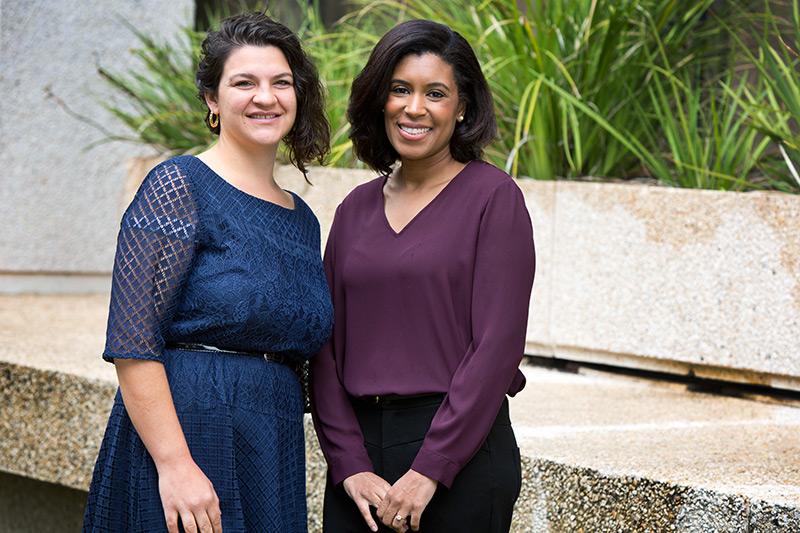Scholars apply intersectional lens to public policy
Thanks to funding from the National Science Foundation, two new scholars have joined Newcomb College Institute’s (NCI) research community. The scholars bring an intersectional approach to the study of law and society by identifying how gender, race, class, sexuality, ethnicity and community shape law.
While at NCI, Bonnie Lucero, a historian and author of the forthcoming Revolutionary Masculinity and Racial Inequality: Gendering War and Politics in Cuba, 1895-1902, will pursue a research project focused on pregnancy, abortion and infanticide in Cuba.
Sociologist and lawyer Emma Shakeshaft’s work focuses on race, law and family formation in the United States. She is pursuing two projects at NCI: One will examine how judges and lawyers frame and define “trafficked persons” in human-trafficking cases and whether these definitions and the populations to which they are applied affect the outcomes of civil and criminal cases. The second project investigates the distribution of two nonimmigrant visas by U.S. Citizenship and Immigration Services governmental agents to determine if allocation differs based on race, national origin and/or gender.
“Their intellectual contributions are timely and topical and demonstrate the real value that social science brings to the academy.”
Anna Mitchell Mahoney
Since Lucero and Shakeshaft’s arrival on campus in September 2017, they have mentored undergraduate student research assistants and have been mentored by senior faculty.
“Emma and Bonnie’s work complements our work, and they have already been great partners in scholarship,” said Anna Mitchell Mahoney, administrative assistant professor of women's political leadership and director of research at the Newcomb Research Center.
“Bonnie spoke to our third-year Newcomb Scholars class about the relationship between global economics and sex work in Cuba, and Emma and I are working together with an undergraduate research assistant and a PhD candidate in economics on an article examining the effect of equal pay laws across the U.S. Their intellectual contributions are timely and topical and demonstrate the real value that social science brings to the academy.”


